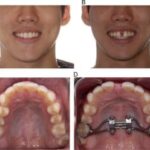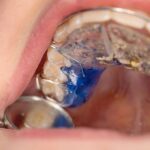The dental profession is constantly evolving, with new technologies and techniques being introduced to improve patient care. One such advancement is the role of the Expanded Function Dental Auxiliary (EFDA). An EFDA is a dental professional who has undergone additional training and certification to perform certain tasks traditionally reserved for dentists. This article will explore the roles, responsibilities, and training required to become an EFDA.
EFDAs play a crucial role in the dental team, assisting dentists in providing high-quality dental care. They are trained to perform a variety of tasks, including placing and removing dental fillings, taking impressions, and applying sealants. By taking on these responsibilities, EFDAs help to increase the efficiency of the dental practice, allowing dentists to focus on more complex procedures.
To become an EFDA, dental professionals must complete additional training beyond their initial dental education. This training typically includes coursework in dental anatomy, radiology, and infection control, as well as hands-on clinical experience. EFDAs must also pass a certification exam to demonstrate their competency in performing expanded functions. This rigorous training ensures that EFDAs are well-prepared to provide safe and effective care to patients.
Definition and Scope of Practice
The expanded function dental auxiliary (EFDA) is a vital member of the dental team, playing a crucial role in providing quality oral healthcare. The EFDA is a dental professional who has received additional training and education to perform advanced clinical tasks under the supervision of a licensed dentist.
The scope of practice for an EFDA varies by state, but generally includes duties such as placing and removing dental fillings, taking impressions, placing and removing dental sealants, and performing certain types of dental radiography. The EFDA may also assist the dentist during more complex procedures, such as crown and bridge work or dental implant placement.
EFDAs are also responsible for maintaining accurate and up-to-date patient records, including treatment plans, progress notes, and any necessary referrals. They may also provide oral hygiene instructions and educate patients on proper dental care techniques.
Collaboration and teamwork are essential aspects of an EFDA’s role. They must work closely with the dentist and other members of the dental team to ensure coordinated and efficient patient care. This includes effective communication, sharing of information, and following established protocols and guidelines.
Overall, the expanded function dental auxiliary plays a vital role in the dental practice, helping to improve access to quality oral healthcare and enhancing the overall patient experience. Their advanced skills and knowledge contribute to the effectiveness and efficiency of dental procedures, ultimately benefiting both the patient and the dental team.
Importance of Expanded Function Dental Auxiliary
The expanded function dental auxiliary plays a crucial role in the dental healthcare team. They are trained professionals who work closely with dentists to provide quality dental care to patients. Their importance lies in their ability to perform advanced dental procedures, thereby increasing access to dental care for patients and improving overall oral health outcomes.
Enhancing Patient Care
Increasing Access to Dental Care
This is particularly important for individuals who may have limited access to dental care due to financial constraints or geographic location. Expanded function dental auxiliaries can provide basic dental services at a lower cost, making dental care more affordable and accessible to a wider range of patients.
Improving Oral Health Outcomes
Expanded function dental auxiliaries contribute to improved oral health outcomes by assisting in the prevention and treatment of dental conditions. Their ability to perform advanced procedures allows for early detection and intervention, leading to better outcomes for patients.
By working closely with dentists, expanded function dental auxiliaries help to identify oral health issues and develop appropriate treatment plans. They also play a role in preventive care, such as applying dental sealants and providing fluoride treatments, which can help to prevent tooth decay and other dental problems.
Overall, the expanded function dental auxiliary is a vital member of the dental healthcare team. Their skills and expertise contribute to enhanced patient care, increased access to dental services, and improved oral health outcomes. By recognizing and utilizing the full potential of expanded function dental auxiliaries, the dental profession can continue to provide high-quality care to patients and promote optimal oral health for all.
Roles and Responsibilities
The expanded function dental auxiliary (EFDA) plays a crucial role in the dental team, assisting the dentist in providing quality oral healthcare to patients. The EFDA is trained and qualified to perform a variety of advanced dental procedures, under the supervision of a licensed dentist.
One of the main responsibilities of an EFDA is to assist the dentist during dental procedures. This includes preparing the treatment area, sterilizing and arranging instruments, and providing chairside assistance to the dentist. EFDA’s may also be responsible for taking dental impressions, applying sealants, and administering local anesthesia.
In addition to chairside assistance, EFDA’s also have administrative responsibilities. They may be responsible for managing patient records, scheduling appointments, and educating patients on proper oral hygiene practices. EFDA’s are often the first point of contact for patients and play a crucial role in creating a welcoming and comfortable environment.
EFDA’s are also responsible for maintaining a clean and safe dental environment. This includes following infection control protocols, sterilizing instruments, and disposing of hazardous materials properly. They must also stay updated on the latest infection control guidelines and ensure compliance within the dental practice.
Furthermore, EFDA’s may be involved in dental laboratory procedures. They may assist in fabricating dental prosthetics, such as crowns or bridges, and ensure their proper fit and function. This requires knowledge of dental materials and techniques, as well as attention to detail.
Overall, EFDA’s have a multifaceted role within the dental team. They provide essential support to the dentist, ensure the smooth operation of the dental practice, and contribute to the overall oral health and well-being of patients.
Training and Education Requirements
Training and education requirements for becoming an Expanded Function Dental Auxiliary (EFDA) vary by state. However, most states require individuals to complete a formal education program and pass a certification exam.
These education programs typically include both classroom instruction and hands-on clinical training. Students learn about dental anatomy, oral health, dental procedures, infection control, and patient communication. They also receive training in the specific skills and responsibilities of an EFDA, such as placing dental sealants, taking impressions, and performing certain restorative procedures.
After completing their education program, individuals must pass a certification exam to become a licensed EFDA. The exam typically consists of a written portion and a practical portion, where candidates must demonstrate their skills in a clinical setting.
Continuing education is also an important aspect of maintaining licensure as an EFDA. Many states require EFDA’s to complete a certain number of continuing education hours each year to stay current on the latest advancements in dental technology and techniques.
Overall, the training and education requirements for becoming an EFDA are rigorous, but they are necessary to ensure that EFDA’s have the knowledge and skills needed to provide high-quality dental care. By completing a formal education program, passing a certification exam, and participating in continuing education, EFDA’s can continue to grow and excel in their careers.
Certification and Licensing
To become an Expanded Function Dental Auxiliary (EFDA), individuals must complete the necessary training and education requirements. Once these requirements are met, they can apply for certification and licensing in their respective state.
Certification ensures that EFDA professionals have acquired the necessary knowledge and skills to perform their duties effectively and safely. It also provides reassurance to patients that they are receiving care from a qualified and competent dental auxiliary.
The specific certification and licensing requirements vary from state to state. However, most states require EFDA professionals to pass a written and practical examination to demonstrate their proficiency in expanded functions. These examinations are usually administered by state dental boards or other regulatory bodies.
Once certified, EFDA professionals must also maintain their license through continuing education and professional development. This ensures that they stay up-to-date with the latest advancements and best practices in the field of dentistry.
Supervision and collaboration with a licensed dentist is another important aspect of certification and licensing for EFDA professionals. They must work under the direct or indirect supervision of a dentist to ensure patient safety and quality of care. This collaborative relationship allows dentists to focus on more complex procedures while EFDA professionals handle routine tasks.
In summary, certification and licensing are essential for EFDA professionals to practice legally and provide high-quality dental care. It ensures that they have the necessary skills, knowledge, and oversight to perform their roles effectively. By maintaining their license and staying current with continuing education, EFDA professionals can continue to grow and excel in their careers.
Supervision and Collaboration
Supervision and collaboration are essential aspects of the role of an Expanded Function Dental Auxiliary (EFDA). EFDA works closely with dentists and other dental professionals to provide high-quality dental care to patients. They assist in various dental procedures, such as placing fillings, taking impressions, and applying sealants.
Under the supervision of a dentist, EFDA performs advanced tasks that require additional training and expertise. They work in collaboration with the dentist to ensure that patients receive comprehensive and effective dental treatment. The dentist provides guidance, oversight, and support to the EFDA, ensuring that all procedures are performed safely and accurately.
Supervision
Supervision is an integral part of an EFDA’s role, as it helps maintain the standard of care and ensures patient safety. The dentist oversees the work of the EFDA, reviewing treatment plans, providing instructions, and evaluating the outcomes. They are responsible for supervising the EFDA’s performance and ensuring that all procedures are carried out according to established protocols and regulations.
The level of supervision required may vary depending on the state regulations and the EFDA’s experience and competency. In some cases, the dentist may need to be present in the treatment room while the EFDA performs certain procedures, while in others, they may only need to be available for consultation or periodic check-ins.
Collaboration
Collaboration is another crucial aspect of an EFDA’s role. EFDA works closely with the dentist and other members of the dental team to provide comprehensive dental care. They communicate with the dentist to discuss treatment plans, share patient information, and seek guidance when needed.
EFDA collaborates with dental hygienists, dental assistants, and other support staff to ensure smooth workflow and efficient patient care. They work as a team, coordinating their efforts to deliver the best possible outcomes for patients. Effective collaboration fosters a positive work environment and enhances the overall patient experience.
Furthermore, EFDA may also collaborate with dental laboratory technicians, communicating specific requirements for dental restorations and prosthetics. This collaboration ensures that the final products meet the patient’s needs and expectations.
Career Opportunities
As an Expanded Function Dental Auxiliary (EFDA), there are various career opportunities available in the field of dentistry. EFDA professionals play a vital role in dental practices, assisting dentists in providing quality oral healthcare to patients.
Additionally, some EFDA professionals choose to pursue careers in dental sales or product development. With their extensive knowledge of dental procedures and materials, EFDA professionals can play a valuable role in marketing and promoting dental products to dental professionals.
Furthermore, EFDA professionals may also choose to advance their careers by becoming dental educators or instructors. They can teach and train future EFDA students, passing on their knowledge and skills to the next generation of dental professionals.
Overall, the career opportunities for EFDA professionals are diverse and rewarding. With the demand for dental services on the rise, there is a growing need for skilled and qualified EFDA professionals in the field of dentistry. Whether working in a general dental office, a specialty practice, public health settings, or pursuing other career paths, EFDA professionals play a crucial role in improving oral health outcomes for patients.
| Benefits of a Career as an EFDA | Challenges of a Career as an EFDA |
|---|---|
| – Competitive salary – Job stability – Opportunities for professional growth – Ability to make a positive impact on patients’ lives |
– Physical demands of the job – Exposure to potentially hazardous materials – Need for ongoing continuing education – High level of responsibility and attention to detail |
Continuing Education and Professional Development
Continuing education and professional development are essential for expanded function dental auxiliaries (EFDAs) to stay current with the latest advancements in the field and to provide the best possible care to patients. As dental technologies and techniques continue to evolve, it is crucial for EFDAs to continuously update their knowledge and skills.
Professional development activities, such as attending conferences and workshops, allow EFDAs to network with other dental professionals and exchange ideas and experiences. These events often feature presentations by renowned experts in the field, who share their insights and expertise. EFDAs can also benefit from participating in professional organizations, which offer resources, support, and opportunities for career advancement.
Continuing education and professional development not only benefit EFDAs but also contribute to the overall quality of dental care. By staying up-to-date with the latest advancements, EFDAs can provide more accurate diagnoses, develop effective treatment plans, and deliver high-quality care to patients. Continuous learning also helps EFDAs stay informed about changes in regulations and best practices, ensuring compliance and patient safety.

Dr. Fidel Cann: Esteemed orthodontist with a lifelong dedication to enhancing smiles and oral health. Pioneering expertise, compassionate care.





